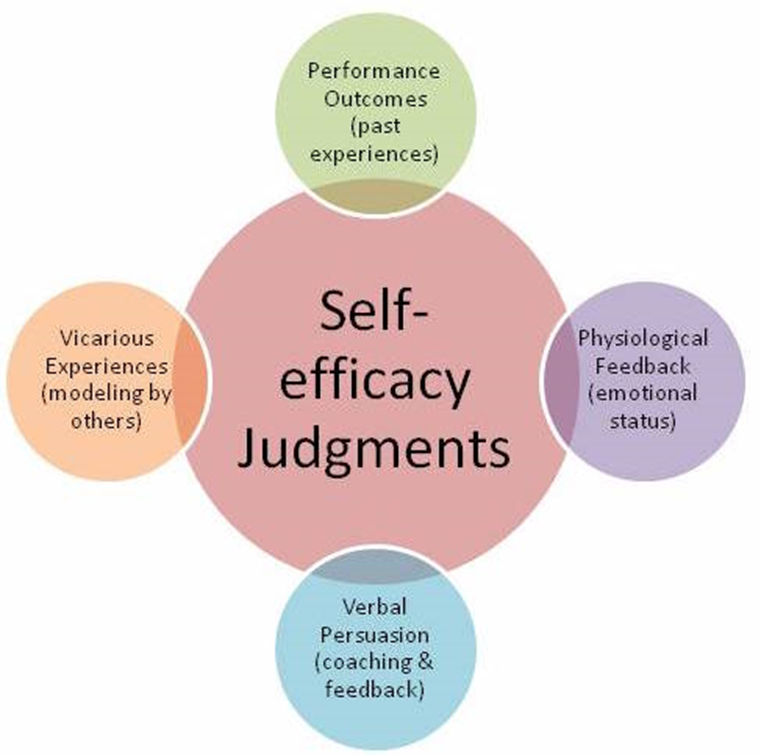The client who believes they have the ability and aptitude to successfully complete a task has a high level of what?
Self-esteem
Self-concept
Self-efficacy
Self-image
The Correct Answer is C
Choice A reason: This is not the correct answer. Self-esteem is the degree to which the client values and respects themselves. It affects the client's confidence, satisfaction, and happiness. It is influenced by the client's self-image, self-efficacy, and self-awareness. A client who believes they have the ability and aptitude to successfully complete a task may have a high self-esteem, but it is not the same as self-efficacy.
Choice B reason: This is not the correct answer. Self-concept is the overall perception and evaluation of the client's self. It includes the client's self-image, self-esteem, and self-efficacy. It is influenced by the client's personal, interpersonal, and environmental factors. A client who believes they have the ability and aptitude to successfully complete a task may have a positive self-concept, but it is not the specific term for their belief.
Choice C reason: This is the best answer. Self-efficacy is the confidence in one's ability to accomplish a specific task. It affects the client's motivation, performance, and persistence. It is influenced by the client's past experiences, vicarious learning, verbal persuasion, and emotional arousal. A client who believes they have the ability and aptitude to successfully complete a task has a high self-efficacy.
Choice D reason: This is not the correct answer. Self-image is the way that the client perceives and describes themselves. It includes the client's physical, psychological, social, and spiritual attributes. It is influenced by the client's self-esteem, self-efficacy, and self-awareness. A client who believes they have the ability and aptitude to successfully complete a task may have a positive self-image, but it is not the same as self-efficacy.

Nursing Test Bank
Naxlex Comprehensive Predictor Exams
Related Questions
Correct Answer is D
Explanation
Choice A reason: This is not the correct answer. Toddlers are the age group from 1 to 3 years old. They are curious and active, but they are not deliberately engaging in risk-taking behaviors. They may explore their environment and test their limits, but they are not aware of the potential dangers or consequences. They rely on their caregivers to provide them with safety and guidance.
Choice B reason: This is not the correct answer. Preschoolers are the age group from 3 to 5 years old. They are imaginative and playful, but they are not intentionally engaging in risk-taking behaviors. They may pretend to be superheroes or princesses, but they are not trying to harm themselves or others. They follow the rules and expectations of their caregivers and teachers.
Choice C reason: This is not the correct answer. School-age children are the age group from 6 to 12 years old. They are learning and socializing, but they are not purposely engaging in risk-taking behaviors. They may join clubs or teams, but they are not involved in illegal or immoral activities. They respect the authority and norms of their caregivers and society.
Choice D reason: This is the best answer. Adolescents are the age group from 12 to 18 years old. They are developing and experimenting, and they are more likely to engage in risk-taking behaviors. They may smoke, drink, use drugs, have sex, or break the law, as they seek thrill, novelty, or peer acceptance. They challenge the rules and values of their caregivers and society.
Correct Answer is A
Explanation
Choice A reason: This is the best answer. Identity vs role confusion is the fifth psychosocial stage, which occurs from 12 to 18 years. The main task of this stage is to develop a sense of identity and personal values.
Choice B reason: This is not the correct stage. Intimacy vs isolation is the sixth psychosocial stage, which occurs from 18 to 40 years. The main task of this stage is to develop a sense of intimacy and commitment in relationships.
Choice C reason: This is not the correct stage. Integrity vs despair is the eighth and final psychosocial stage, which occurs from 65 years and older. The main task of this stage is to develop a sense of integrity and acceptance of one's life.
Choice D reason: This is not the correct stage. Generativity vs stagnation is the seventh psychosocial stage, which occurs from 40 to 65 years. The main task of this stage is to develop a sense of generativity and contribution to society.
Whether you are a student looking to ace your exams or a practicing nurse seeking to enhance your expertise , our nursing education contents will empower you with the confidence and competence to make a difference in the lives of patients and become a respected leader in the healthcare field.
Visit Naxlex, invest in your future and unlock endless possibilities with our unparalleled nursing education contents today
Report Wrong Answer on the Current Question
Do you disagree with the answer? If yes, what is your expected answer? Explain.
Kindly be descriptive with the issue you are facing.
